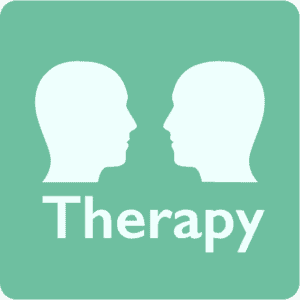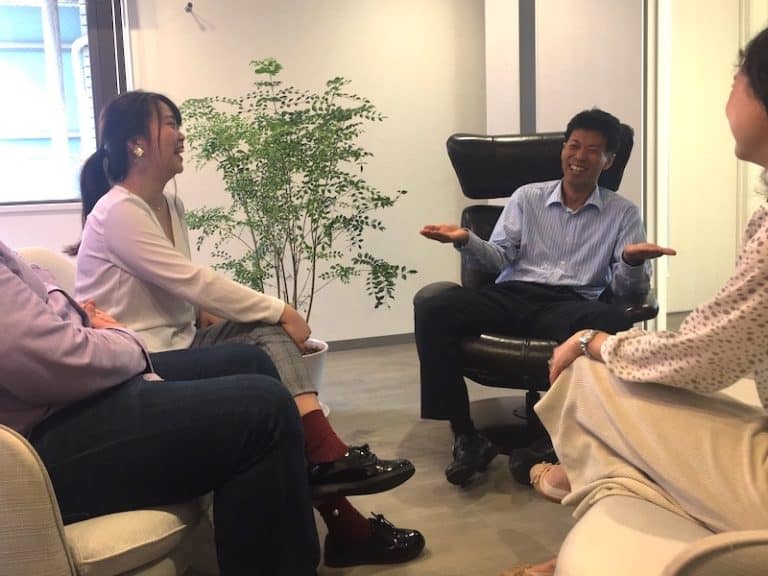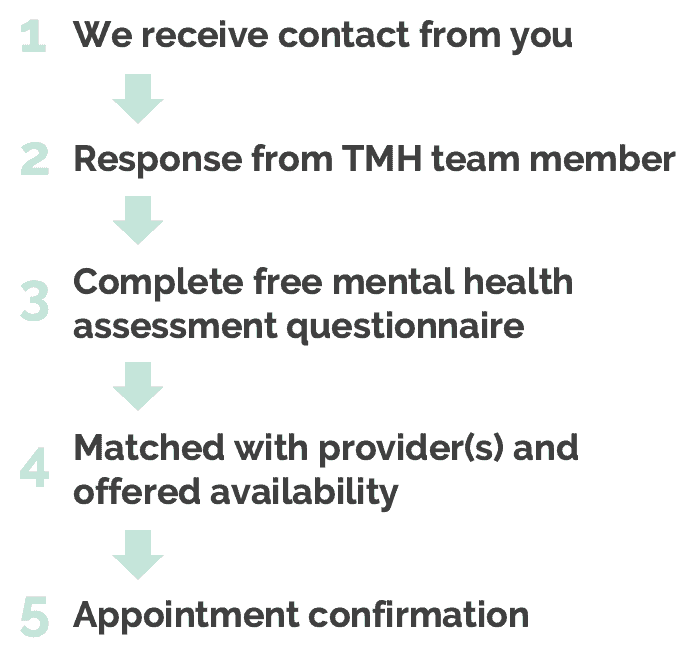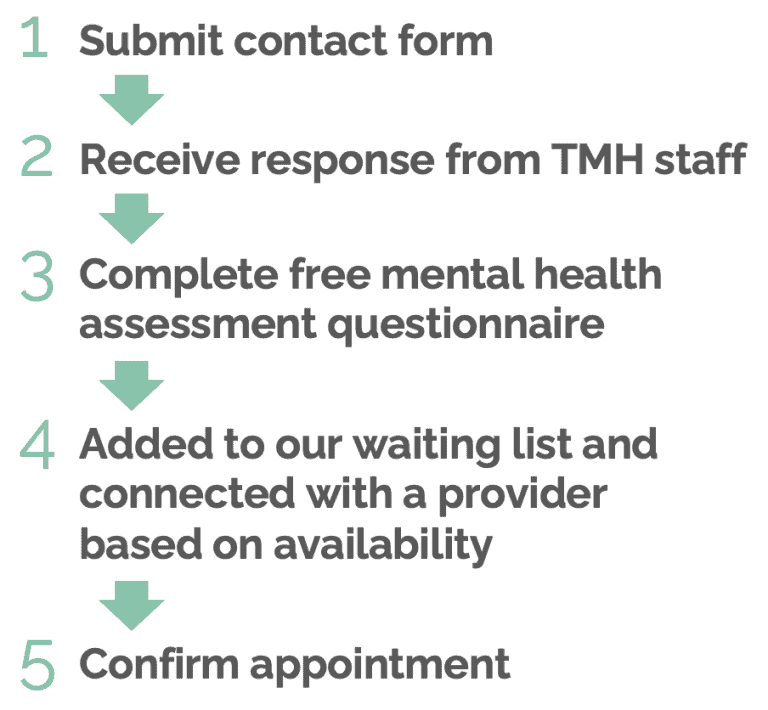Tokyo Mental Health provides a comprehensive psychotherapy service for mental health problems such as depression, anxiety, PTSD and trauma, emotional instability, anger management, worry and stress.
We offer both client-centered counseling approaches and a variety of more directive and evidence-based psychological treatments, such as cognitive therapy, mindfulness-based therapies, acceptance and commitment therapy, and systems-focused psychotherapies. We work with individuals, couples, and families, and people of all ages including children and adolescents.

Services Within Counseling and Psychotherapy
Click and learn more about our different treatment options.
Why Choose TMH?
All psychotherapies are offered in native English with one of our internationally qualified therapists. We have a multidisciplinary team of therapists including clinical psychologists, couples and family therapists, counselors and Dr Andrew Kissane, a UK-trained English psychiatrist.
Our goal is to provide mental health expertise and international-standard psychotherapy in native English specifically for the foreign community and Japanese returnees, in the Tokyo area, Okinawa, and via telehealth across all of Japan.
If you would like more information, please use the online contact form or email us at [email protected].

Methods and Interventions
Click and learn more about our methods and interventions below.
Cognitive Therapy works under the premise that our thoughts can influence our emotions and behaviors. By acquiring a variety of new cognitive techniques during Cognitive Therapy, the client becomes able to change their thinking habits, improving their emotional condition.
Psychodynamic psychotherapy is a long-established therapeutic approach that focuses on exploring and interpreting unconscious motivations and conflict. Psychodynamic psychotherapy often places the relationship between the client and therapist at the centre of the therapeutic process. This approach is based on the work of Freud, Klein, Winnicott, and often more contemporary practitioners in the intersubjective and relational schools.
Play therapy is a type of psychological therapy that uses play as a platform to allow children to express and develop feelings and ideas within a safe environment, guided by a therapist. Play therapy is commonly used to help children with emotional problems such as anxiety, attachment problems, and difficulties with emotional regulation, social problems such as school refusal, communication problems, social integration, behavioral problems and trauma.
Contemporary mindfulness-based psychological therapies integrate concepts such as, willing acceptance, being in the moment, self as context, and loving kindness, with other concepts from cognitive and behavioral psychology and traditional psychodynamic psychotherapy. The therapist aids clients in their recovery from the symptoms they are suffering and assists them to give meaning and direction to their daily life.
Person-centered or client-centered therapy was founded by Carl Rogers in the 1950s and asserts that the client is the expert on themselves and their experiences. The therapist encourages the client to explore and understand themselves and their problems. The therapist does this by offering a safe environment in which the client can come to understand how their past experiences inform their present. A key part of person-centered therapy is understanding the self-concept which can require a lot of in-depth exploration. person-centered therapy is a flexible approach best suited for those who want to have a greater understanding of themselves and their experiences in a safe environment free from judgement, where your experiences are valued and understood.
Narrative therapy was developed by Michael White during 1970s-1980s. Narrative therapists believe “The person is not the problem; the problem is the problem.” Narrative therapists view people as the expert of their own life, and that the role of the therapist is to assist the person by helping them map the direction of their own healing process.
Acceptance and Commitment Therapy aims to help with “learning to accept what cannot be changed and to change what can be changed.” ACT is predicated on the idea that we experience more distress when we fight against internal phenomena that we cannot control. Instead, ACT encourages clients to make space for our unwanted thoughts or emotions. ACT provides mindfulness-based and behavioral techniques to: accept our reactions and be present, choose a valued direction, and take action to work towards living a life we would value.
In this model, the therapist works from the assumption that problems are maintained by dysfunctional patterns in people’s relationships. Rather than analyzing the origins of unhealthy patterns, systemic therapy focuses on recognizing and altering those patterns. This process helps uncover how people communicate and behave within the system. This approach emphasizes the “here and now” and tends to be solution-focused, rather than problem saturated.
Dialectical Behavior Therapy is designed to help people effectively regulate overwhelming emotions by building skills in four key areas:
–Mindfulness: Strengthening focus on the present moment
–Emotional Regulation: Improving emotional management skills
–Distress Tolerance: Learning how to soothe overwhelming emotions in healthier ways
–Interpersonal Effectiveness: Assisting in building healthier relationships
EFT aims to help an individual (or couple) enhance their emotional connections by increasing emotional accessibility and responsiveness. EFT changes the ineffective interactions in our relationships so our fundamental needs of safety and love can be met.
Available Locations
Our Counselors and Psychologists Providing Therapy
Setting Up a Counseling Appointment
Please use our contact form below to start the process of setting up an appointment.
One of our team members will respond to your enquiry with more information about our appointment process. The general flow from first contact to appointment is shown in the chart on the left.
We aim to offer appointments in a timely manner and on most occasions you can expect to have an appointment within two to three weeks of contacting us. However, there are times when we receive a high volume of enquiries and our providers become fully booked weeks ahead. During these times, we implement a waiting list and appointments can take four to six weeks to schedule. Additionally, if you have any preferences for a provider, such as requesting a specific provider by name, needing a specific provider due to language requirements, having a preference for the gender of the provider, or needing a specific day and/or time of day, please note that there can generally be longer waiting times depending on your specific needs and preferences.
If you have any questions or concerns regarding our appointment process and/or our waiting list please feel free to check out our FAQ page or contact us at [email protected].
Please use our contact form below to start the process of setting up an appointment.
One of our team members will respond to your enquiry with more information about our appointment process. The general flow from contact to appointment looks like this:

We aim to offer appointments in a timely manner and on most occasions you can expect to have an appointment within two to three weeks of contacting us. However, there are times when we receive a high volume of enquiries and our providers become fully booked weeks ahead. During these times, we implement a waiting list and appointments can take four to six weeks to schedule. Additionally, if you have any preferences for a provider, such as requesting a specific provider by name, needing a specific provider due to language requirements, having a preference for the gender of the provider, or needing a specific day and/or time of day, please note that there can generally be longer waiting times depending on your needs and preferences.
If you have any questions or concerns regarding our appointment process and/or our waiting list please feel free to check out our FAQ page or contact us at [email protected].

Make an Appointment
To make a counseling and psychotherapy appointment, please use the booking form below, or use the following email address : [email protected].
If you have not heard back from us within 48 hours, please check your email spam folder. If you still don’t seem to have received an email response from us, please contact us at [email protected].
Currently, due to the high volume of enquiries, we may need to add you on our waiting list.
In addition, we are currently not accepting any enquiries for clients under the age of 8. Thank you for your understanding.
We are currently not offering counseling and psychotherapy services in Chinese.